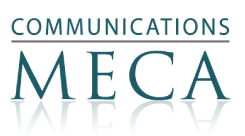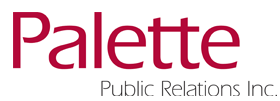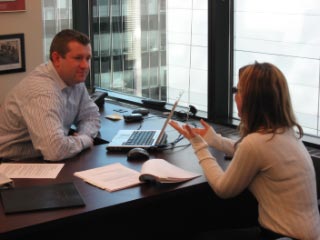Have you ever been found yourself presented with the opportunity to work for a client who might be controversial.
 Recently, my company was asked to work for an organization that many would consider controversial. We struggled with whether we should accept the assignment and, ultimately chose to decline it.
Recently, my company was asked to work for an organization that many would consider controversial. We struggled with whether we should accept the assignment and, ultimately chose to decline it.
Even though we encounter this type of situation many times in business, it is all too easy to become mired in the specifics of a situation and to lose sight of your longer term objectives.
So, as we deal with these kinds of issues, I’ve written down three questions that I think will always guide us to the right outcome. I’d like to share them with you and get your feedback on this approach and what you do in your own company when confronted with this type of situation.
Business should not be value-free; But it’s complicated
As the CEO of a company, I have to be concerned about the impact our roster of clients will have not only on our public image, but also on our self-image and our internal culture. People should spend their time working on things they believe in. They shouldn’t be compelled to work on assignments or for clients they disagree with.
In the 1980s and early nineties, the CEO of the firm I then worked for famously declared that we would not shy away from taking on controversial clients because “just as every person is entitled to a vigorous defence in court, they also deserve a vigorous defence in the court of public opinion.” Well, I disagreed with that position then and I disagree with it now. There are some bad people in life and they don’t deserve a vigorous defence – at least not from me.
But that’s easy. The “clearly bad” are at one extreme. But we don’t live life in the extremes. We live them in the mushy middle, in shades of gray.
We can’t expect everyone to agree with us or believe in the things we agree in. But we also can’t shy away from supporting a cause or belief that not everyone supports. If we did that, we’d lose ourselves in the depths of political correctness and we’d never do anything.
How do you decide whether to take on a client that may be controversial?
 First, avoid the trap of believing that you have to make the decision on your own. I lead a company. But I also work as a team member in that company. The route to the right decision about accepting a potentially controversial client lies first in remembering that we all have a stake in this decision and involving more people than myself in the decision.
First, avoid the trap of believing that you have to make the decision on your own. I lead a company. But I also work as a team member in that company. The route to the right decision about accepting a potentially controversial client lies first in remembering that we all have a stake in this decision and involving more people than myself in the decision.
Once past this hurdle, I have three questions that will get you to the right outcome for our organization:
1) Do we support the objectives of the potential client as well as the way they go about attempting to achieve them?
The world is full of business opportunities. Why not look for those whose objectives and methods we applaud? Conventional management wisdom advises against grabbing every business opportunity which presents itself but which is off strategy. Similarly, why not focus on bringing in business from organizations and companies that you can easily support. In our case, ff can’t say with pride that we work for a client, we will walk away from the opportunity to work for them.
2) How will this affect the culture of your company?
The answer to the first question cannot be fully provided without reference to the entire organization. Are there people within your company who feel strongly about the potential client? Will it create division and alienation?
This doesn’t mean that anyone individual (including the CEO) should have a veto. Don’t be afraid to have a vigorous internal discussion. It can lead to an understanding and respect of the different perspectives held by people. Reasonable people should be able to understand another’s point of view and respect that point of view.
Ultimately this is the issue on which management must make a call. Can the normal and healthy differences in opinion be accommodated or is this a situation in which the cultural cost will be too high? If the latter, take a pass on the potential client.
3) How will this be perceived by the external world?
This question comes last because, if you’ve answered the preceding two, you will be ready to weather the disapproval of those who disagree with your decision. And there will always be those that disagree. That’s the great thing about an open and liberal society. We hold different views and we are free to express them.
My objective is not to stop people from criticizing us. My objective is that we appear reasonable and reasoned in our defense of our decision. And if we do that, it will loop back into our internal culture
Bottom line
While we can’t eliminate controversy from attaching it to our businesses (unless we are prepared to be so nondescript and bland that we leave no footprint), by answering these three simple questions we can be true to our essential nature, build a stronger culture, and be ready to respond to comments from the outside world.
How do you handle this kind of situation?
I’d welcome your views on this. What practices do you follow in your company to manage potentially controversial situations?









